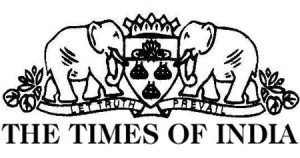In Chhattisgarh, change of guard for Maoists and a rethink on violence as ideology
The police of Narendra Modi and Rajnath Singh has succeeded to eliminate a good number of Maoist cadres, but they could not quite break the backbone of Maoists in Chhattisgarh, despite severe repression using the state machinery and putting a number of innocent people in jail for being sympathisers of the Maoists.
While the police of the BJP government roamed the terrains and the Maoist bastions, the Maoists assembled and took stock of the situation, adopted resolutions and took oath to resurrect their organisation. Most importantly, they elected a new general secretary, asserting that the party was alive and kicking.
Some months back CPI(Maoist) had announced a voluntary retirement scheme for its leaders, who were physically and mentally unfit. The eventual mission was to rejuvenate and reorganise at the grass root and make the party a ‘lean and mean’ fighting machine. Incidentally, the 67-year-old general secretary, Ganapathy (Mupalla Laxman Rao) stepped down to set an example to the leaders down the ranks. He became the head of CPI(Maoist) in 2004. Of late, he was not keeping well and as a consequence the party had to suffer a lot.
Ganapathy has been replaced by Basavaraj alias Namballa Keshav Rao as the new general secretary. Basavraj’s installation did not attract much fanfare, as the leadership did not intend to take much risk. Basavraj was preferred because of his experience of working across Maoist territories.
Ganapathy, a former school teacher, joined the Naxalite movement in the early 1970s. He went underground and became the Karimnagar district committee secretary of CPI(ML)(PW) when the outfit was formed in 1980. Within a couple of years, he was installed as the general secretary. Under his leadership the outfit made strides in many areas hitherto beyond the reach of the party. He was the prime mover of the idea of merger of Party Unity and MCC.
This is the first major move to strength the party. Sources maintain that the change of guard is also expected in the eastern regional bureau, headed by the party’s senior-most leader, the septuagenarian Prashanta Bose, alias Kishan da, who has been suffering from multiple ailments. A first batch Naxal who joined Maoist politics in the mid-1960s and was based in south Bihar since 1970, Bose looks after party organisation for the in Jharkhand, West Bengal and parts of Bihar and Odisha.
The decision to relieve sick and stressed out leaders of their responsibilities was taken after the leaders were found to be too weak to lead. This also become imperative after a section of the leaders openly started opposing the leadership of Ganapathy and pushing their own retirement. These leaders were primarily active in areas like West Bengal, Jharkhand, Bihar, Odisha and Maharastra.
In a three-page circular distributed earlier this year the party had observed, “the comrades of physical and mental limitations must demonstrate revolutionary consciousness in identifying their limitations and voluntarily step out of their committees and come forward to take up responsibilities that they can do justice. The central and the state leadership must establish such an ideal in the party through their (own) practice.”
It basically meant that, those who were aged and mentally stressed should relinquish responsibilities and take up overground activities, said a source associated with the party. However, the document did not mention any cut off age to determine what the party means by “aged” leaders.
“In areas of severe offensive the issue of protection of veteran comrades came forward. If the situation does not allow protection to the comrades we must try to send them to other movement areas or areas of no movement in the rural and urban areas. Comrades released from jail and suffering with old age and ill health must be told to live openly and take up responsibilities,” the circular states.
No doubt the changes are significant; it is nevertheless believed that the party would not give a relook at it strategy and also not frame a fresh ideological approach. Even a senior official of the Odisha Police said there will not be major operational changes in the Maoist organisation. Obviously, they too will have to make a major change in dealing with left wing extremism (LWE) after CPI(Maoist). Basavraj, the new general secretary is one of the most wanted Maoists listed by the National Investigation Agency on its website. He has a Rs1.57 crore reward on his head.
The change of guard was anticipated ever since the Maoist party’s Central Committee meeting held in February 2017 passed a resolution on ‘veteran comrades’ asking senior leadership to voluntarily step down from their responsibilities because of their age. The central committee resolution spoke about forming special squads to protect these veteran leaders and in case it is difficult to provide security to them in forest areas, they should be moved to towns of cities with ‘due protection’.
Namballa Keshava Rao was heading the Central Military Commission (CMC) and is known to be an expert in field craft, use of explosives and military tactics. He had been underground for the last 28 years and had graduated from the Regional Engineering College (REC) in Warangal, which is now rechristened the National Institute of Technology (NIT). He was known to have been arrested in Srikakulam only once after a clash between members of the Radical Students Union (RSU), then a student’s wing of the CPI-ML People’s War (PW) and the Rasthriya Swayamsevak Sangh (RSS) on January 21, 1980.
His predecessor, Laxmana Rao, is known more to be ideologically strong than in military tactics. Laxmana Rao had worked as a teacher in Eligedu village of Karimnagar district and had been with Kondapalli Seetharamaiah (KS) who founded the CPI-ML People’s War (PW). He commanded the Peddapally dalam and later worked as the District Committee secretary of Karimnagar and later elected to the Andhra Pradesh State Committee, Central Organising Committee.
Though the Maoist leaders do not like to speak at this juncture, there is a feeling inside the party that violent mode of action by the party has forced it to lose much of its ground. The violent model of protest and movement has made the party lose some of its precious and really good leaders. They believe that a new initiative could be made to build a mass movement. Since the party has strong base this will help it expand and get wide support of the peasantry and agricultural labourers. (IPA)
The post In Chhattisgarh, change of guard for Maoists and a rethink on violence as ideology appeared first on TheLeaflet | An Imprint of Lawyers Collective.
Thank you for viewing this legal update on Lex Do It. For more legal news and updates do not forget to subscribe and share! Read Original Post





